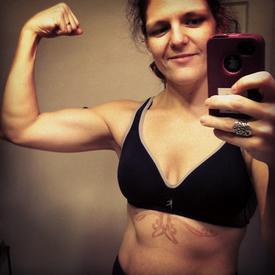Eggs--Are they bad or not?
Options

sassycat
Posts: 108 Member
I am totally confused about eggs. I love eggs--no matter how you cook them; scrambled, fried, boiled (never had poached--I am going to try that way this weekend). However, I have to watch my cholesterol and some websites state that "stay away from eggs". Another website stated that was just a myth.
Can someone please tell me if eggs are really bad for you--if you have to watch your cholesterol?? :frown:
Can someone please tell me if eggs are really bad for you--if you have to watch your cholesterol?? :frown:
0
Replies
-
I am totally confused about eggs. I love eggs--no matter how you cook them; scrambled, fried, boiled (never had poached--I am going to try that way this weekend). However, I have to watch my cholesterol and some websites state that "stay away from eggs". Another website stated that was just a myth.
Can someone please tell me if eggs are really bad for you--if you have to watch your cholesterol?? :frown:0 -
I love eggs too! If you need to watch your cholesterol, try using egg whites (sold just like egg beaters in a container) with 1-2 regular eggs. I use 1/4 - 1/3 cup with one regular egg. Just try experimenting.
I also use egg beaters.0 -
you love eggs from your head down to your legs!
eggs are the perfect food! just like everything, in moderation. They contain many essential nutrients! Go for it!0 -
you love eggs from your head down to your legs!
eggs are the perfect food! just like everything, in moderation. They contain many essential nutrients! Go for it!
:laugh: :laugh:
The incrediable ediable egg!!0 -
Like most any food that is natural, Eggs ARE GOOD! eaten in moderation of course.
Do not fear the egg.
--Diann...0 -
Eggs are extremely good for you and studies show that they can actually increase good cholesteral and decrease the bad:
Energy value of eggs
A medium egg has an energy value of 78 kilocalories (324 kilojoules) and the consumption of one egg daily would contribute only around 3% of the average energy requirement of an adult man; 4% for an adult woman.
With their significant protein, vitamin and mineral content and relatively low saturated fat content, eggs are a valuable component in a healthy diet.
Protein
Eggs are an excellent source of protein. Egg protein is of high biological value as it contains all the essential amino acids needed by the human body. Eggs therefore complement other food proteins of lower biological value by providing the amino acids that are in short supply in those foods. 12.5% of the weight of the egg is protein and it is found in both the yolk and the albumen. Although protein is more concentrated around the yolk, there is in fact more protein in the albumen.
On the evaluation scale most commonly used for assessing protein, egg is at the highest point, 100, and is used as the reference standard against which all other foods are assessed.
Vitamins
Eggs contain most of the recognised vitamins with the exception of vitamin C. The egg is a good source of all the B vitamins, plus the fat-soluble vitamin A. It also provides useful amounts of vitamin D, as well as some vitamin E.
Minerals
Eggs contain most of the minerals that the human body requires for health. In particular eggs are an excellent source of iodine, required to make the thyroid hormone, and phosphorus, required for bone health. The egg provides significant amounts of zinc, important for wound healing, growth and fighting infection; selenium, an important antioxidant; and calcium, needed for bone and growth structure and nervous function. Eggs also contain significant amounts of iron, the vital ingredient of red blood cells, but the availability of this iron to the body is uncertain.
Carbohydrate and dietary fibre
Eggs contain only traces of carbohydrate and no dietary fibre.
Fat
11.2% of the egg content is fat. The fat of an egg is found almost entirely in the yolk; there is less than 0.05% in the albumen.
Approximately 17% of an egg’s fatty acids are polyunsaturated, 44% monounsaturated and only 32% saturated.
Cholesterol
Cholesterol and Lecithin are fat-like substances and are essential to the structure and function of all cells in the body. Cholesterol helps to maintain the flexibility and permeability of cell membranes and is also a raw material for the fatty lubricants that help to keep the skin supple. Cholesterol is essential for the production of sex hormones, cortisol, vitamin D and bile salts.
Lecithin is involved in general lipid transportation in the blood and in the metabolism of cholesterol.
ScienceDaily (Oct. 29, 2001) — MANHATTAN -- Nutrition researchers at Kansas State University have published the first evidence that the absorption of cholesterol is reduced by another compound in the egg, a lecithin.0 -
so can i have eggs in cakes mmmmmm :laugh:

no no ...... i love poached egss on toast with some tinned tomatoes 0
0 -
It's understandable that you're confused. Eggs are high in cholesterol, and a diet high in cholesterol can contribute to elevated blood cholesterol levels. However, the extent to which dietary cholesterol raises blood cholesterol levels isn't clear. Many scientists believe that saturated fats and trans fats have a greater impact than does dietary cholesterol in raising blood cholesterol.
Adding to the confusion, the American Heart Association recently acknowledged that as long as you limit dietary cholesterol from other sources, it may be possible to include a daily egg in a healthy diet — a statement that was heavily reported in the media.
Here are the facts: One large egg has about 213 milligrams (mg) of cholesterol — all of which is found in the yolk. If you are healthy, it's recommended that you limit your dietary cholesterol intake to less than 300 mg a day. If you have cardiovascular disease, diabetes or high LDL (or "bad") cholesterol, you should limit your dietary cholesterol intake to less than 200 mg a day. Therefore, if you eat an egg on a given day, it's important to limit or avoid other sources of cholesterol for the rest of that day.
If you like eggs but don't want the extra cholesterol, use egg whites. Egg whites contain no cholesterol. You may also use cholesterol-free egg substitutes, which are made with egg whites. If you want to reduce cholesterol in a recipe that calls for eggs, use two egg whites or 1/4 cup cholesterol-free egg substitute in place of one whole egg.
http://www.mayoclinic.com/health/cholesterol/HQ006080 -
Eggs are delicious, but I only eat egg whites. I think they taste even better; they don't have the cholesterol to worry about; and I have noticed when you order egg whites at a restaurant, they give you way more than if you had normal eggs. :P0
-
I have never been able to stand the taste of eggs. I have tried a lot it causes a lot of breakfast problems. They always serve the bulk of breakfast as eggs in restaurants. So I give them to my husband which makes him happy anyway.:)0
-
Has anybody tried the Egg Beaters 100% Whites?
I was thinking about trying to eat egg whites as breakfast in the morning without having the hassle of cracking and separating an egg. I am kind of getting bored with my veggie bacon. :yawn:0
This discussion has been closed.
Categories
- All Categories
- 1.4M Health, Wellness and Goals
- 396.5K Introduce Yourself
- 44.2K Getting Started
- 260.8K Health and Weight Loss
- 176.3K Food and Nutrition
- 47.6K Recipes
- 232.8K Fitness and Exercise
- 449 Sleep, Mindfulness and Overall Wellness
- 6.5K Goal: Maintaining Weight
- 8.6K Goal: Gaining Weight and Body Building
- 153.3K Motivation and Support
- 8.3K Challenges
- 1.3K Debate Club
- 96.5K Chit-Chat
- 2.6K Fun and Games
- 4.5K MyFitnessPal Information
- 16 News and Announcements
- 18 MyFitnessPal Academy
- 1.4K Feature Suggestions and Ideas
- 3K MyFitnessPal Tech Support Questions









